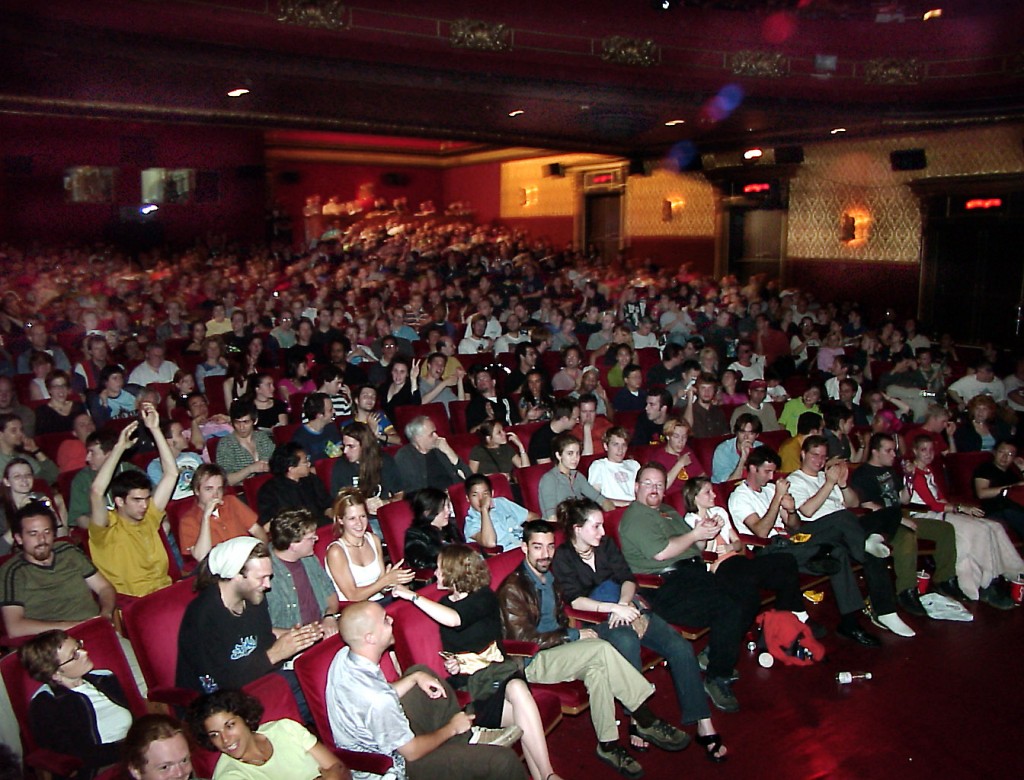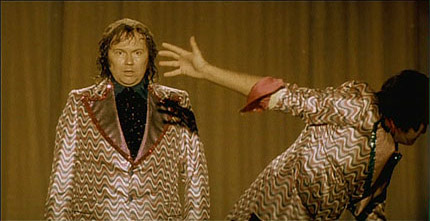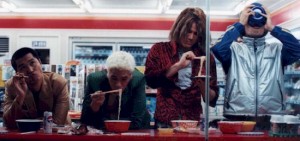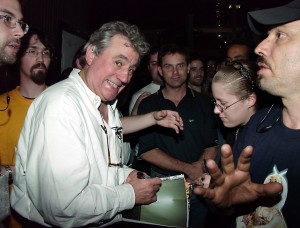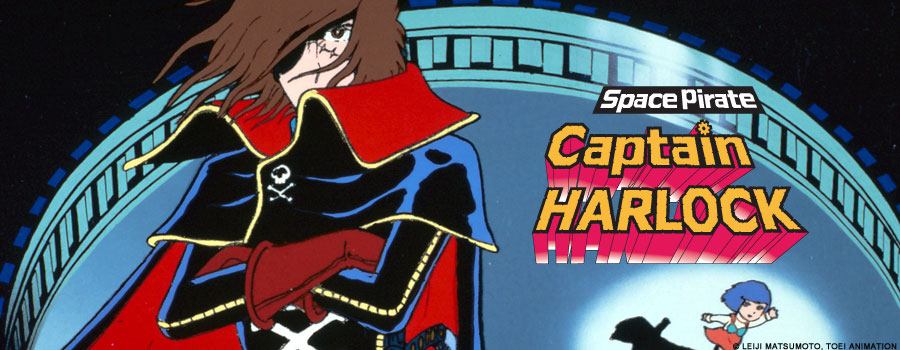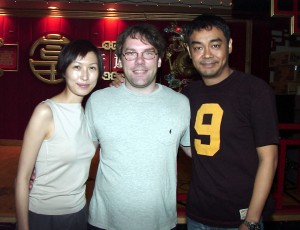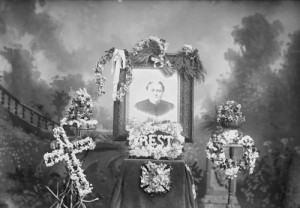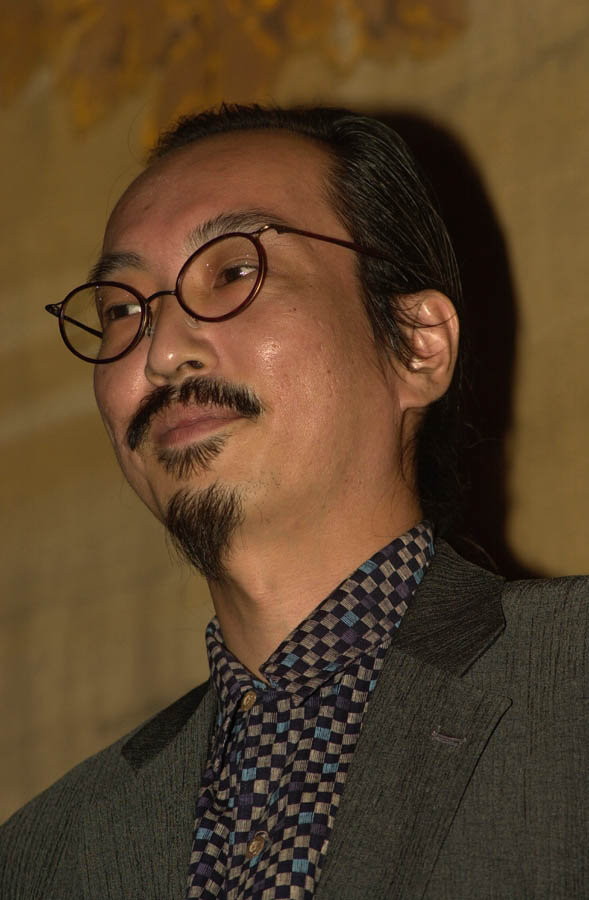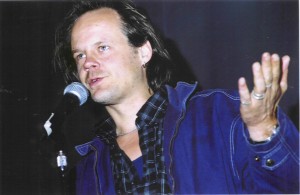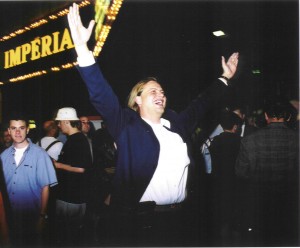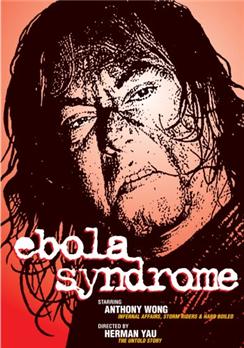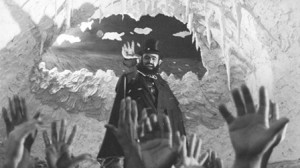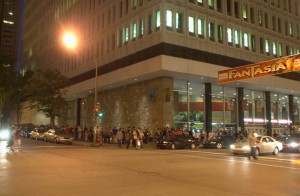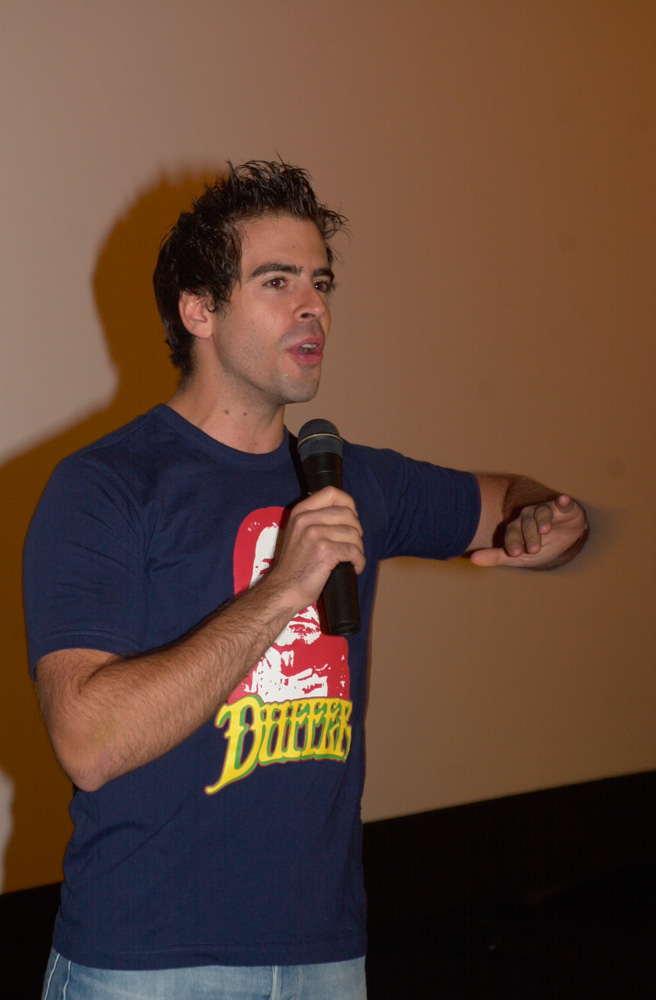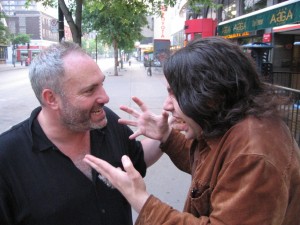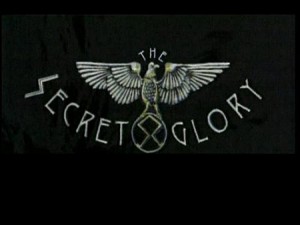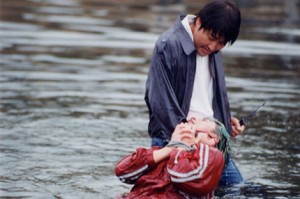15 YEARS OF FANTASTIC DISCOVERIES: 2000-2003
In 2011, The viagra free samples Fantasia International Film Festival celebrates its 15th Anniversary. It’s been a wild ride full of amazing, eye-scorching, boundary-busting cinema, and we’ve had some of the genre’s leading lights with us along the way. For the months leading up to this summer’s anniversary edition, we’ll be posting festival overviews highlighting each year’s premieres, special guests and thematic retrospectives, accompanied by rare event photos and personal reminiscences from many of our past guests and collaborators.
—————–
With this 5th edition of Fantasia came a brand new millennium to how to get cialis without prescription overcome with funny, funky, scary, creepy and mind-bending cinema. After the Ex-Centris adventure (in 1999 only), Fantasia’s following escapade was a quite funny one: for the first time, Fantasia teamed up with another genre cinema festival, Just for Laugh’s Comedia division, to give to the moviegoers some more fun for their buck. This cool partnership (which lasted two years) brought the Fantasians their lot of great gems, such as Dying of Laughter (by Spanish wunderkind Alex de la Iglesia), Dialogue-free Delicatessen-inspired Tuvalu (with Director Veit Helmer in attendance, distributing 35 mm frames of the German film to the attendees), Mike Mendez’s horror comedy The Convent (Canadian premiere) and The Independent (starring lots of cult personalities appearing as themselves) with its bigger than life star in attendance, Seinfeld’s Jerry Stiller (yes, the loudmouth father of Ben). The Public Prize went to South-Korean comedy Attack the Gas Station. On the stand up and legendary event front, the presence of Terry Jones of Monty Python fame was one of this edition’s highlights, where a few hundred lucky lads had An evening with Mr. Creosote. Once in a how do u buy propecia in canada lifetime, as they say.
2000 was not only the year of the dragon for zodiac enthusiasts, but so was this festival’s edition, with lots of jewels from Japan. The organizers scored big time with Takashi Miike’s most subtle, yet sickly stunning film, slow-burner Audition (with porcelain-faced Shiina Eihi, who later came to Montreal in 2008 to introduce insane gorefest Tokyo Gore Police) and with his first Dead or Alive yakuza actioner. Other highlights from the rising sun include Hideo ‘Ringu’ Nakata’s Chaos (North-American premiere), Shinya ‘Tetsuo’ Tsukamoto’s Gemini, Blade Runner porno pseudo-sequel I.K.U. (Canadian premiere, with Director Shu Lea Cheang in attendance), Ring 0: The Birthday (North-American premiere) and Higuchinsky’s beyond insane manga adaptation Uzumaki (international premiere). On the manga front, were presented prized extended-short Blood: The Last Vampire (North-American premiere), Vampire Hunter D (international premiere) and intergalactic pirate manga Albator Le Film (the popular French translated version of Space Pirate Captain Harlock), among others.
Rockin’ films by festival staples were also screened to packed houses, such as Hong-Kong’s Ringo Lam (Victim, also with Chin-Wan) and Johnnie To (The Mission with the almighty Anthony Wong, and Running Out of Time with actor Lau Ching-Wan in attendance – both won prizes in the Best Asian Film category), Spain’s Jaume Balaguero (in attendance to present his prized The Nameless and his short Alicia) and future Rec’s co-Director Francisco ‘Paco’ Plaza (his short Abuelitos was part of annual short film program Small Gauge Trauma along with Balaguero’s Dias Sin Luz). Dark short Black XXX-Mas by Pieter Van Hees (who later went on to direct the amazing Left Bank, presented at the festival in 2009) was also included in SGT’s 2000 edition, where it won a Best Short Film prize.
Fantasia also held the North-American premiere of Germany’s Anatomie (starring Franka ‘Lola’ Potente), a sick little medical thriller-slasher hybrid with a morbid aesthetic inspired by the then-unknown plastination technique, later used in non-fiction controversial exhibits using real corpses donated (or not) to science artistically, such as Body Worlds and Bodies. The film won a prize in the Best International Film category. Thailand’s Nang Nak (with Director Nonzee Nimibutr in attendance), India’s The Terrorist (a John Malkovich presentation), Canada’s Island of the Dead (world premiere with star Malcolm McDowell in attendance) and UK’s Wisdom of Crocodiles were also part of the international selection.
Also from the UK, Producer Simon Markham made the trip overseas to present his darkly weird Blood (Director Charly Cantor couldn’t attend the North-American premiere, having to stay home to get treated for cancer), so did Director James Marsh with his ‘documentary’ Wisconsin Death Trip. Also screened were American satanic flick Ricky 6’s world premiere (with Director Peter Filardi and most of his cast in attendance, including Vincent Kartheiser and Emmanuelle Chriqui – and won a prize in the Best International Film category), along with a director’s cut of Wild Side, the late Donald Cammell’s boiling noir masterpiece where Christopher Walken shines big time (editor Frank Mazzola’s hour-long Q&A was one for the history books, reminiscing on great artists he worked with, such as Cammell, Dennis Hopper, Nic Roeg and James Dean).
Any Fantasia early edition would not be complete without its share of sick and twisted vintage midnight screenings: audiences were treated with Italian cult freak-outs such as City of the Walking Dead (directed by almighty Umberto Lenzi, with running and gunning zombies!) and Gates of Hell (also known as confusedly titled City of the Living Dead – by beloved gore maestro Lucio Fulci), where Kaiju fanatics rejoiced with Rebirth of Mothra 3’s international premiere and brand new 35 mm prints of classics starring the radioactive dino, such as Invasion of Astro Monster (1965) and Son of Godzilla (1967). And they threw an ol’ Santo on screen as well. Of course.
—————–
– FANTASIA 2001 –
Fantasia’s 6th edition kicked off with some heavy hitters: on the Asian side of things, Takashi Miike’s Visitor Q (a stunning ode to Pasolini’s Teorema) saw its North American Premiere (and had people running for the doors in the first five minutes) alongside Miike’s Dead or Alive 2: Birds; an unknown South Korean director by the name of Park Chan Wook (later to direct Sympathy for Mr. Vengeance, Oldboy and Lady Vengeance) made a first splash with his breakout film Joint Security Area; James (Project A2) Yuen’s Clean My Name Mr. Coroner, starring HK hunk Francis Ng, Zhang Jianya’s airplane disaster pic Crash Landing, Dante Lam’s self-conscious pastiche of Triad films Jiang Hu: The Triad Zone, Japanese fantasy/monster kids’ flick Sakuya (from FX artist Tomoo Haraguchi, who appeared in person);Kim Ji-Woon’s early wrestling comedy The Foul King; the international premiere of Rin Taro’s animated Metropolis; Sogo Ishii’s Gojoe; Kim Ki-Duk’s The Isle (our generation’s Woman in the Dunes); haunted scarecrow horror Kakashi; the melancholic episodic anime Boogie Pop Phantom; Bong Joon Ho’s first feature Barking Dogs Never Bite (he would later direct The Host and Mother); Kiyoshi Kurosawa’s Seance; the Korean horror powerhouse Tell Me Something from Yoon-Hyun Chan; Shimoyama Ten’s creepy, beautifully coloured St. John’s Wort; Shugo Fujii’s excessive and hysterical A Living Hell; and the late Satoshi Kon received a standing ovation for the World Premiere of his heartbreaking anime Millennium Actress.
On the international front, Fantasia hosted the World Premiere of Scott Reynolds’ When Strangers Appear (originally titled The Shearer’s Breakfast and the follow-up to his amazingly edited gender-bender Heaven), the director’s cut (and North American Premiere) of Antoni Aloy’s moody masterpiece El Celo (a Spanish version of Henry James horror classic The Turn of the Screw), the World Premiere of British indie director Andrew Parkinson’s feminist zombie film Dead Creatures (Parkinson is now one third of the horror anthology Little Deaths), a controversial North American Premiere screening of Victor Salva’s Jeepers Creepers and the Canadian Premieres of both Brad Anderson’s resonant haunted-psych-ward horror Session 9 and Terry Zwigoff’s adaptation of Daniel Clowes’ Ghost World.
Jorge Olguin made a splash with the North American Premiere of Angel Negro, notable for being the first Chilean horror film, while the Steven Seagal-obsessed German director Olaf Ittenbach (best known for low-budget zombie splatter epic Premutos) introduced his Legion of the Dead, and Fantasia regular Larry Fessenden presented his much-anticipated revisionist horror Wendigo (which won first prize in the international section).
Canadian offerings included the World Premiere of Maurice Devereaux’ game show satire $lasher$, John Eyre’s Ripper: Letter From Hell, and a series of fantastical shorts from Quebec filmmakers, including Stephane Morisette’s Otaku and Izabel Grondin’s Terrore.
The repertory section held strong with screenings of un-PC gross-out classic The Ebola Syndrome, featuring Anthony Wong at his detestable best, a new version of Katsuhiro Otomo’s Akira, Grindhouse Releasing’s new print of Ruggero Deodato’s devastating Cannibal Holocaust, new prints of Once Upon a Time in China 1 +2 and Miyazaki’s Laputa: Castle in the Sky. Jose Mojica Marins – Coffin Joe himself – appeared to introduce screenings of This Night I Will Possess Your Corpse and long-banned experimental drug film Awakening of the Beast (the first time any of his films had screened in Canada in 35mm!), accompanied by the Canadian Premiere of Andre Barcinski’s Sundance hit Coffin Joe: The Strange World of Jose Mojica Marins, and the Troma team introduced their latest, Citizen Toxie.
Standout short films included Nicolas Debot’s Extremism Breaks my Balls; Tomoya Sato’s award-winning suicide drama L’Ilya; a special Japanese shorts program that not only introduced the plastic pleasures of The Fuccon Family to Canadian audiences (with director Yoshimasa Ishibashi in person), but also the international premiere of enigmatic artist Tatsuo Sato’s haunting animated short Nekojiru-so and a tribute to the low-budget films of self-proclaimed ‘baka’ (trash) filmmaker Tenkwaku Naniwa; Rita Romagnino’s Final Rehearsal; the first of Helene Cattet and Bruno Forzani’s giallo tributes, Catharsis (the pair would go on to great acclaim with Amer in 2010); Ben Boucher’s animated Flat n’ Fluffy; Ashley Fester’s Old Breed; a double bill of horror shorts from French director Michel Leray; student filmmaker Zung So-Yun’s The Anatomy Class and many more.
The 2001 festival would mark the last of the festival’s official collaborations with Just For Laugh’s ‘Comedia’ section, as well as its last sojourn at the Imperial Cinema, which was about to undergo extensive renovations that would last several years.
—————–
– FANTASIA 2003 – YEAR OF THE PHOENIX
Between 1996 and 2001, the Fantasia festival was predominantly held at the Imperial Cinema. In April of 2002, the festival organisers were informed that some important delays were to be expected in the execution of emergency works that needed to be made on the rooftop, air conditioning and plumbing of the old cinema. Of course, alternative locations were evaluated, in vain. The shortness of the notice, coupled with the desire to not affect the festival’s performance nor its credibility, lead to an inevitable ‘2002-without-Fantasia’ kind of break.
The next year, the organisers faced another wall in 2003: some more restoration works were to take place at the Imperial, and were not to be finished in time to held the seventh edition of the Fantasia Festival. So, another big room needed to be found, a place where movie lovers make theirs. Peter Rist of the Mel Hoppenheim School of Cinema suggested checking with the Concordia University management to rent the Théâtre Hall (700 seats) and Salle J.A. De Sève (200 seats). The festival organisers chatted with Cindy Canavan, the one in charge of technical operations. She welcomed Fantasia’s request with enthusiasm and had a brand new screen and sound system installed in the Hall room, giving the festival the best projection quality in Montréal.
The organizers and programmers were nervously waiting for July 14th, 2003 to come, so the ticket pre-sales could begin. Would the public follow the festival to this new location? Even though the box office would not open until 2PM, an impressive line-up of people started to wait in line starting as early as 8AM. With several hundred fans already on site at noon, it’s easy to see how more than 15,000 tickets were sold in the ensuing 48 hours.
That year’s line-up included 86 feature films from 20 countries. Regarding the length and quality of the 2003 edition, the official festival prize list speaks for itself : Hiroyuki (Sabu) Tanaka’s Drive (best asian film), Jean-Baptiste Andrea & Fabrice Canepa’s Dead End (best international film – presented in North-American premiere), the Trees of Life Collective’s Tamala 2010 (best animated film) and Sono Sion’s Suicide Club (most revolutionary film).
This edition confirmed the emergence of unique creators like Joel Bergvall & Simon Sandquist (The Invisible’s Canadian premiere), Katsuhito Ishii (Shark Skin Man & Peach Hip Girl), Kwak Jae-young (My Sassy Girl), Elza Kephart (Graveyard Alive’s world premiere), Damon Packard (Reflections Of Evil), the Pang brothers (The Eye), Paco Plaza (Second Name’s Canadian premiere), Dennison Ramalho (Amor So De Mãe’s international premiere), Eli Roth (Cabin Fever), the Spierig Brothers (Undead’s North-American premiere), Éric Tessier (Sur Le Seuil’s sneak preview) and Yukihiko Tsutsumi (2LDK’s Canadian premiere).
The festival’s seventh edition showcased works by several of Fantasia’s most revered directors, including Don Coscarelli (Bubba Ho-Tep), Stuart Gordon (King Of The Ants’ Canadian premiere), Shusuke Kaneko (Giant Monsters All-Out Attack’s Canadian premiere), Ryuhei Kitamura (ARAGAMI’s Canadian premiere), Kim Sang-Jin (Kick The Moon’s Canadian premiere), Lasse Spang Olsen (Old Men In New Cars: In China They Eat Dogs II’s Canadian premiere), Victor Salva (Jeepers Creepers 2’s world premiere), Corey Yuen (So Close’s Canadian premiere) and Brian Yuzna (Beyond Re-Animator’s Canadian premiere), among others.
Fantasia also celebrated the Korean cinema with its « Faces of Korea » spotlight, which featured no less than 11 films including Kim Hyun-jung’s Double Agent (Canadian premiere), Park Je-Hyeon’s The Legend Of Gingko (North-American premiere), Sung-su Kim’s Musa The Warrior’s Canadian premiere), Jang Sun-Woo’s Resurrection Of The Little Match Girl (Canadian premiere) and Park Chan-Wook’s Sympathy For Mr. Vengeance. The French New Wave of Fantastique Genre Cinema was also highlighted with the « Vive La France fantastique! » section, which included Marina De Van’s Dans Ma Peau and Éric Valette’s Maléfique (Canadian premiere).
That was also the year where Fantasia gave to the Montreal cinema lovers the documentary work of cult director Richard Stanley, with a spotlight called « Voodoo, War And Mysticism », that presented three singular films: Voice Of The Moon, The Secret Glory (North-American premiere) and The White Darkness (North-American premiere). The festival paid tribute to Takashi Miike’s work, by presenting a selection of four of its movies : Graveyard Of Honour (Canadian premiere), Ichi The Killer, Man In White (North-American premiere) and Shangri-La. Among the prestigious guests of this edition were Steve Cuden, Shusuke Kaneko, Scooter McRae, Jorge Olguin, Dennison Ramalho, Eli Roth, Patrick Senécal, Richard Stanley, Éric Tessier, Éric Valette, Ray Wise and the Phylactère Cola collective.
Over 25 days, Fantasia attracted 73 000 spectators and confirmed its pertinence on the local film festival scene and on the international front. In mythology, the Phœnix represents an amazing bird that is able to rise again from its own ashes. It is clear that after the difficult times they met in 2002-2003, the Fantasia festival organizers could very well admit that 2003 was really their year of the Phœnix.
—————–
Stay tuned to the next issue of Spectacular Optical for Festival Overviews of Fantasia 2004-2007!

 May 1, 2011
May 1, 2011  No Comments
No Comments
